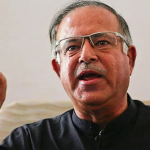In a groundbreaking journey of technological transformation, the Information Technology Department of the Union Territory of Jammu and Kashmir has achieved remarkable milestones, ushering in a new age of digital administration, e-governance, and technological integration. Over the past four years, these initiatives have redefined public service delivery, transparency, and citizen engagement, positioning Jammu and Kashmir as a leader in digital innovation post-2019.
The e-Services Quality Assessment Application (AQS) represents a substantial advancement in the Government’s efforts to enhance the quality and effectiveness of e-services offered to the citizens of Jammu and Kashmir. AQS’s real-time feedback mechanisms and its ability to provide a comprehensive assessment of all 1100 e-services underscore the Government’s unwavering commitment to delivering high-quality digital services to its constituents.
The journey of the Union Territory of Jammu and Kashmir post 2019, as guided by the Information Technology Department, has seen transformative accomplishments in the field of information technology. These achievements represent a strong commitment to transparent, accountable, and citizen-centric governance. The initiatives undertaken have paved the way for a more efficient, responsive, and digitally enabled government, thus reinforcing the path towards a prosperous and connected future for the region. The Information Technology Department remains dedicated to the vision of ‘Digital J&K,’ ensuring that the momentum of progress continues to benefit the citizens.
Key Milestones
From Physical Files to e-Office:With over 480 government offices embracing e-office solutions, Jammu and Kashmir spearheaded the transition to a paperless approach, achieving an impressive file disposal rate of 97%. This move not only enhanced efficiency but also resulted in annual savings of 400 crores to the public exchequer by ending the 150-year-old tradition of Darbar Move.
Expanding Online Services:The governance landscape witnessed a complete overhaul towards digital governance, with the number of online services skyrocketing from 60 to 1100. Jammu & Kashmir leads the nation in the number of services provided online, offering citizens seamless access to government services, certificates, licenses, permits, and welfare schemes.
e-UNNAT Portal:The introduction of the e-UNNAT dynamic portal integrated 1100 online services, facilitating transparent communication with citizens. Jammu and Kashmir became the first in the country to integrate with MeriPechaan (National Single Sign-On), enhancing service delivery and efficiency.
Rapid Assessment System (RAS):Leading the way with the highest number of services integrated with RAS, Jammu and Kashmir revolutionized feedback mechanisms for e-services. Over 485 e-services are integrated with RAS, with more than 75 lakh citizens providing feedback, reflecting over 86% satisfaction.
PSGA and Auto-Appeal:Jammu and Kashmir pioneered the auto-appeal feature into the Service Plus platform, ensuring transparent and citizen-friendly government services, with 74767 appeals generated as per the performance dashboard.
Digital Inclusion Initiatives:The introduction of Mobile Dost app, Toll-Free Number 14471, and Digilocker empowered citizens to access government services conveniently. Integration with Digilocker for essential documents enhanced document sharing and verification.
Employee Performance Monitoring Portal (EPM):The innovative EPM allowed monthly self-appraisals for government employees, revolutionizing performance appraisal and enhancing accountability. With over 330850 employees registered, it’s the first of its kind introduced in India by a State or UT Government.
Launch of m-Seva:Leveraging mobile penetration, m-Seva enabled communication with citizens via bulk SMS in multiple languages, with 18 government departments utilizing bulk SMS service.
National e-Governance Delivery Assessment Report (NeSDA):Jammu and Kashmir ranked as the top Union Territory in e-Governance in both the State portal and online services, highlighting its commitment to transparency and effective governance.
Collaborative Engagements:MoUs signed with various institutions fostered knowledge sharing and collaborative engagement in the field of Information Technology, including AI/ML and IOT.
MyGov-Jammu and Kashmir:The first UT to launch MyGov instance, Jammu and Kashmir engaged citizens through competitions and challenges, with 78530 registered users.
Launch of Gati-Shakti Sanchar Portal:Integration with the Centralized RoW Portal streamlined right-of-way permissions for telecommunications infrastructure.
Key IT Policies Adoption:Adoption of critical IT policies ensured secure and efficient use of digital resources in government operations, emphasizing security and reliability.
J&K Cyber Security Policy:Launched in November 2022, the policy aims to prevent and respond to cyber threats, safeguarding UT’s digital information and assets.
AI Framework:Formulation of a comprehensive AI strategy focuses on sectors like healthcare, agriculture, mobility, education, and law enforcement.
Upgraded State Data Centre:The state-of-the-art Hyper-converged State Data Centre ensures seamless 24×7 operations support.
4G Mobile Services Saturation Project:Efforts to provide 4G mobile services to remote areas signify the commitment to bridging the digital divide.
Other IT Interventions:Initiatives like SARANSH, DigiSahayak, Virtual Tour, Face Recognition App, and eAQS further enhance digital capabilities and service quality.









